For years, it’s been ingrained in us that talking about money is a major social faux pas. You’re not supposed to ask what people make or question how they spend it, and doing so is incredibly rude. But open and honest conversations about money are the true secret to learning how to better your financial future. Now, in times of economic uncertainty, it’s more important than ever.
I know I’m looking around, trying to figure out if I’m the only one floundering and how to stay afloat. I want to know how much people are making, how they’re budgeting their salaries, how much they’ve saved, whether they have debt, and if so, how they’re paying it off. These are the questions I find myself asking all the time, so I know the Everygirls are out there asking them, too. To get some answers, we turned to our readers for real responses on how they’re managing their finances right now.
Where readers stand with their finances right now
Finances can feel so isolating. For so long, we’ve considered it taboo or uncouth to bring up things like salaries or budgets with anyone who isn’t your immediate family. But it doesn’t have to be this way. If you’re not sure where your financial situation fits amongst the crowd, here’s how more than 150 readers responded to a handful of basic finance questions. As you’ll see, there is a vast range of financial situations present here, so even if your bank account doesn’t look the way you want it, take comfort in the fact you’re very much not alone.
How readers are dealing with their finances RN
They’re so stressed, they’re turning a blind eye
One common thread in nearly every response we received: We are very stressed about finances. Anxious, worried, confused, and nervous came up over and over again when we asked how readers are feeling about money right now. And even though we know sticking our heads in the sand isn’t helpful, high anxiety can make that our default coping mechanism.
Sophie, 35, lives with her partner and makes $40,000 to $60,000 a year, with less than $1,000 in savings and less than $5,000 in debt. “Things have gotten tight. I panic every time I swipe my card,” she said. In terms of budgeting, she’s “winging it.” Brianna, 29, is also “stressed beyond belief” when it comes to managing her finances. After leaving her husband, she’s paying rent and learning how to be an adult for the first time post-COVID-19 on less than $40,000 a year, with less than $1,000 in savings and less than $5,000 in debt. “My system is pay the bills and don’t look,” she said of her budgeting strategy. When it comes to paying off her debt, “hopes and prayers” is her mentality.
They’re perfecting their budgets
Others, while just as anxious, are using that stress as motivation to refine their budgets. A popular method among our readers is the 50/30/20 budgeting rule, where 50 percent of your income goes toward needs, 30 percent toward wants, and 20 percent toward savings.
Laura, 30, uses this breakdown to manage her salary, help build out her savings, and pay off her debt. While she’s worried about money, this method and cutting back on “fun” expenses have made her feel more in control. “Don’t panic,” Laura said. “Build the emergency fund, get three months of living expenses, and then pay high-interest debt.”
“I have anxiety attacks before and after I purchase anything. From a small coffee to a new purse to a class for my career.”
Another popular tactic is zero-based budgeting, where every dollar is allocated to a specific expense—bills, savings, investments—so you’re left with zero. Valerie does her best to follow this strategy with her salary, but despite having no debt and over $100,000 in savings, she’s still incredibly overwhelmed. “I’m aware of everything I do. I use every last drop of toothpaste, every speck in the mayo jar,” she said. “I was aware before, but now I stress over wasting anything. I’m so worried about our retirement future that everything I do is about how much money this costs us.”
Emily, 30, uses an “ADHD-friendly” version of zero-based budgeting, where she tracks her budget weekly. While it helps her understand where her salary is going, she still experiences intense anxiety. “I have anxiety attacks before and after I purchase anything,” she said. “From a small coffee to a new purse to a class for my career.”
Some readers take a simpler approach: paying themselves first. This means setting aside money for savings or investments before doing anything else with their paycheck to “pay” your future self. Maddie swears by it. “It’s hard sometimes, but I feel like it’s the only thing that actually works and forces me to invest and save money.”
“I keep redoing my budget, but it feels like I can’t ever keep up.”
Many people aren’t following a specific budgeting method but are definitely cutting back on expenses. The Everygirls are sticking to strict grocery budgets, skipping workout classes, and postponing travel. Instead of dinner and drinks with the girls, they’re finding free hobbies and activities. But even when slashing unnecessary expenses, some still feel like they’re falling behind.
“I keep redoing my budget, but it feels like I can’t ever keep up,” said Lily. Serena, 29, is even delaying her engagement until she feels more financially stable. Still, she’s trying not to let it impact her quality of life. “I’m just reminding myself what my goal is, but not letting it stop me from living,” Serena said.
They’re trying to tackle their debt
No one wants to rack up thousands of dollars of debt, but it’s an unfortunate reality with how expensive it is to exist in today’s world. Though it can be intimidating to try to chip away at that mountain, a lot of readers are committed to paying down their debt. A popular approach is the snowball method: You pay off the smallest debt first, then roll that payment into the next debt, and so on until you’re debt-free. Kim, 40, is using this method to tackle her debt aggressively. Though she worries retirement may not be an option for her anymore, she remains optimistic. “Try not to let the world scare you too much! You know what you need to do. Trust your resources and remember you got this!” On the flip side, Cathy, 30, is also trying to use the snowball method to pay off her debt—but continues to rack up more just to stay afloat. “We used to have wiggle room, and now there is zero wiggle room,” she said. “I’m not paying off credit cards right now.”
Others, like Jenny, 35, have paused debt payoff plans entirely. She has over $50,000 of debt, and while she’s focused on budgeting, when it comes to her student loans, it’s largely “out of sight, out of mind.” Some are still making small payments where they can, like Shannon, 32. She feels “behind for her age” and has reduced her debt payments due to the uncertainty of the moment. “Not having money in other areas isn’t a risk I want to take,” she said.
They’re reconsidering starting a family
When you’re younger, the decision to have kids seems like a simple yes or no. In adulthood, it’s not always about desire—it’s about affordability. Frances, 29, and her husband have talked about having a baby soon, but they’re not sure they’re financially ready, even with their more comfortable income and savings. “I’m not sure if I want to have a kid in this economy,” she added. Lauren, 36, agreed. Her current financial situation has all but sealed her decision not to have children. When you’re worried about your own financial stability, the risk of adding a child, no matter how badly you want one, just doesn’t feel worth it.
“I’m not sure if I want to have a kid in this economy.”
They’re adjusting their savings
A solid savings cushion can ease financial anxiety, but building that safety net is tough. Some readers are prioritizing savings as their main financial focus. Abigail, 33, has over $100,000 in savings and plans to keep growing it. “We are trying to save as much as possible! The economy feels extremely unstable, and marketing jobs are not safe in the current job market.”
Even if you’re contributing the same amount to your savings account, it can feel like that money isn’t going as far. “We’re contributing the same, but often find ourselves pulling money out to cover something like buying extra food or needed clothing,” said Valerie. “Our savings are increasing at a much slower rate.”
If you haven’t been able to save at all, you’re not alone. Many readers shared their frustration about not being able to contribute to savings or investments. “Our personal savings accounts are not growing at all. Every penny is accounted for, and my husband is even seriously considering cutting back his 401(k) contributions,” said Jane, 31. Hannah, 38, echoed that feeling, only contributing to retirement accounts because nearly every dollar from her paycheck is already spent, with nothing left over for any other savings accounts.
They’re putting off buying a home
For decades, owning a home was seen as the ultimate sign of “making it.” Today, that goal feels more out of reach than ever for a lot of people.
Even though Harper, 30, and her spouse both work full time, they can only just cover basic expenses for their two kids. “We can barely afford groceries for us, let alone try to save or plan for the future,” she said. She still dreams of owning a home, but that would require them both finding higher-paying jobs.
“We can barely afford groceries for us, let alone try to save or plan for the future.”
Kate, 29, feels similarly. Her goals of sending her kids to private school and buying a home on her $60,000 to $80,000 salary feel like a “fever dream.” Sam had a similar sentiment. “I’m convinced I’ll be a renter forever, despite us having more savings than any millennial I know,” she said. Despite having over $100,000 in savings, she still can’t afford to be a homeowner and is paying more in rent than her friends pay in mortgages for homes they bought before 2020.
They’re feeling comfortable despite the uncertainty
It’s not all doom and gloom. Some readers have found ways to make their budgets work for them and are feeling surprisingly comfortable. One factor that may heavily influence that comfort is age. Laney, who owns a female-focused financial planning business, isn’t worried about herself or her younger clients, who have decades until retirement and likely won’t be affected in the long run by economic volatility. But she is concerned for her retired clients, both their finances and emotional health.
Brenda, who lives in New York City, also has a similar sense of peace. While she wishes her nonprofit salary were higher, she still feels at ease with how she manages her money. “Know where every dollar is going—the more you’re aware of what you’re spending your money on, the more choices you can make on how to manage it,” she said.
They’re searching for financial advice
One of the most frustrating parts about the societal belief that we shouldn’t talk about money is that it leaves all of us with more questions than answers. So many Everygirls want to get their finances under control but have no idea where to start. They’re actively searching for financial advice, but when they try to find resources, it’s often too overwhelming. Anne, 28, describes her budgeting system as “just vibes, unfortunately.” Mia, 30, is in a similar spot, hoping for guidance to shift her current approach: “Praying? (In a non-religious way) and dreaming about winning a ton of money.”
Hopefully, this article and the tactics our readers are using, like zero-based budgeting, the 50/30/20 method, or paying yourself first, are a helpful launching point. But if you’re looking for even more guidance, we’ve got you. Our site is full of career and finance content to help you on your financial journey. Whether you want to know how tariffs will affect your wallet, need simple hacks to save money, want real-life advice on paying off debt, or are ready to try a new budget method, we’re here to be your resource.
Editor’s note: Names have been changed to protect identities
ABOUT THE AUTHOR
Lauren Blue, Assistant Editor
As an Assistant Editor for The Everygirl, Lauren ideates and writes content for every facet of our readers’ lives. Her articles span the topics of must-read books, movies, home tours, travel itineraries—and everything in between. When she isn’t testing the latest TikTok trend, she can be found scouring Goodreads for new releases to feature on the site.
Feature graphic images credited to: Sophie Baerwolf | Dupe, Rebecca Hayward | Dupe, and Taylor Thomas | Dupe
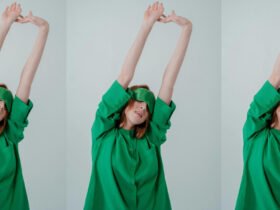





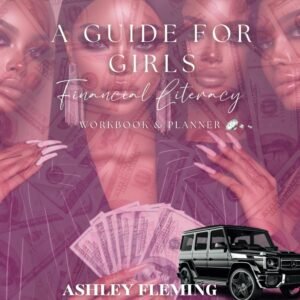

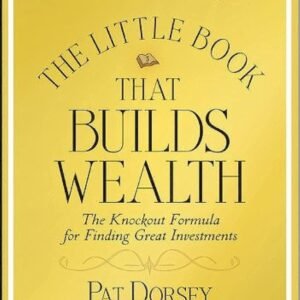


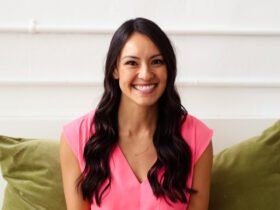
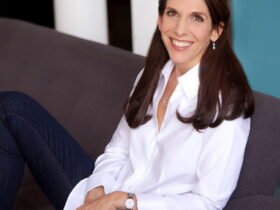
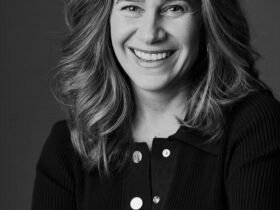
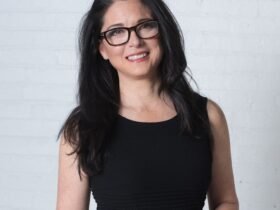




Leave a Reply